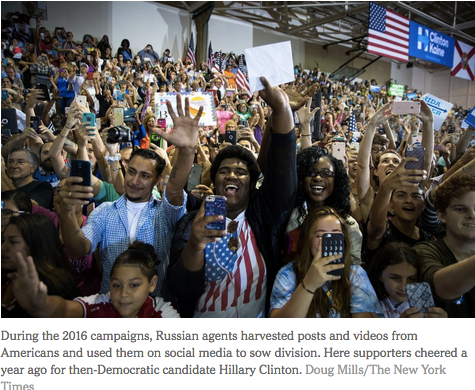YouTube videos of police beatings on American streets. A widely circulated internet hoax about Muslim men in Michigan collecting welfare for multiple wives. A local news story about two veterans brutally mugged on a freezing winter night.
All of these were recorded, posted or written by Americans. Yet all ended up becoming grist for a network of Facebook pages linked to a shadowy Russian company that has carried out propaganda campaigns for the Kremlin, and which is now believed to be at the center of a far-reaching Russian program to influence the 2016 presidential election.
A New York Times examination of hundreds of those posts shows that one of the most powerful weapons that Russian agents used to reshape American politics was the anger, passion and misinformation that real Americans were broadcasting across social media platforms.
The Russian pages — with names like “Being Patriotic,” “Secured Borders” and “Blacktivist” — cribbed complaints about federal agents from one conservative website, and a gauzy article about a veteran who became an entrepreneur from People magazine. They took descriptions and videos of police beatings from genuine YouTube and Facebook accounts and reposted them, sometimes lightly edited for maximum effect.




